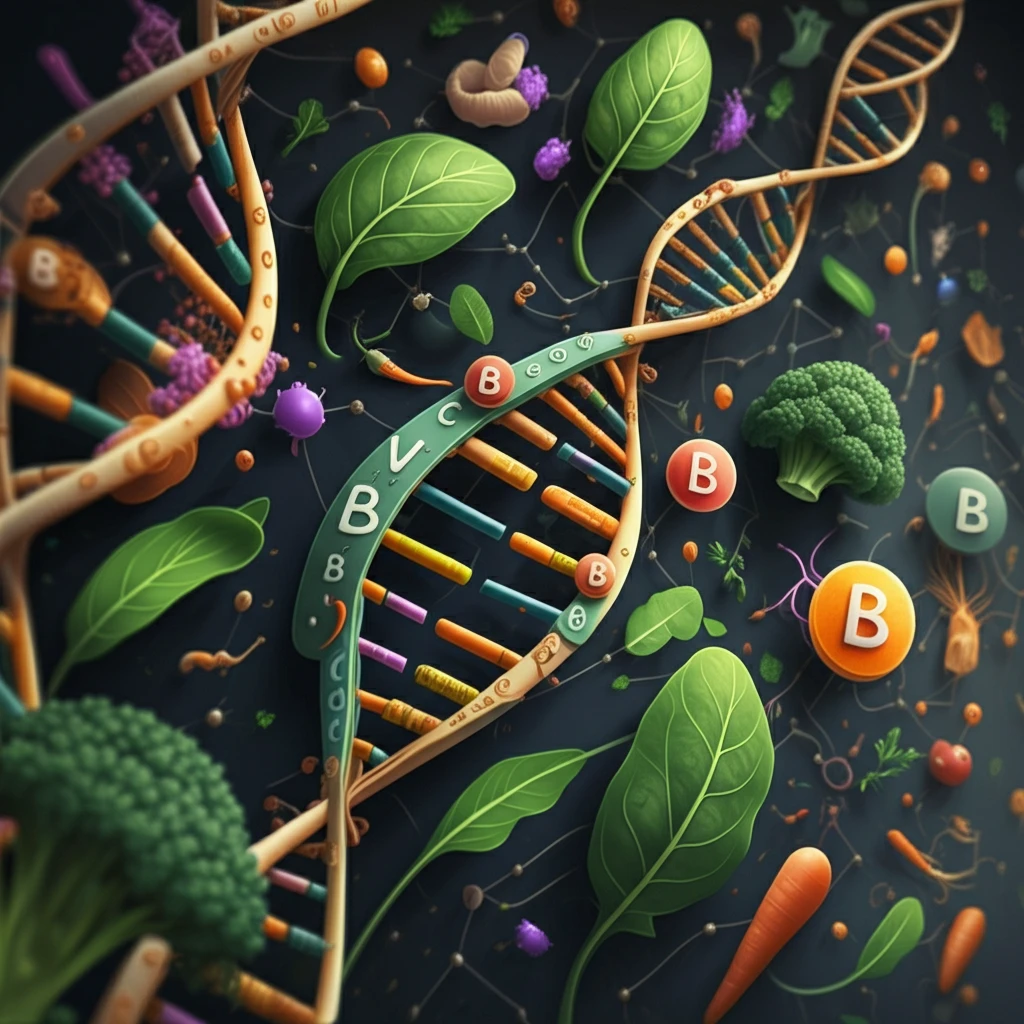
The Unsung Hero of Healthy Aging: How One-Carbon Metabolism Can Change Your Life
"Unlock the secrets to longevity and vitality with one-carbon metabolism: the nutrient pathway you've likely never heard of."
In the quest for a longer, healthier life, we often focus on popular trends like exercise and superfoods. However, a lesser-known biochemical network called one-carbon metabolism may hold the key to unlocking true longevity and vitality. This intricate pathway influences everything from DNA repair to energy production, impacting how we age at a cellular level.
One-carbon metabolism is essentially a series of chemical reactions that manage and distribute one-carbon units (think of them as tiny building blocks) throughout your body. These units are crucial for essential processes like creating nucleotides (the foundation of DNA), modifying DNA and proteins (a process called methylation), and neutralizing harmful toxins. When this system functions optimally, it supports overall health and resilience.
The exciting part? You can directly influence your one-carbon metabolism through diet and lifestyle. By understanding the key nutrients involved and how they interact with your genes, you can make informed choices to potentially slow down the aging process and protect against age-related diseases.
Decoding One-Carbon Metabolism: Your Body's Hidden Engine

At its core, one-carbon metabolism relies on a team of essential nutrients, primarily water-soluble B vitamins (folate, B6, B12, and B2), as well as methionine, choline, betaine, serine, and glycine. These nutrients act as fuel and co-factors, driving the reactions within the pathway. Imagine a complex Rube Goldberg machine where each nutrient plays a specific role in passing along one-carbon units to their final destination.
- Folate (Vitamin B9): Essential for DNA synthesis and repair. Found in leafy greens, legumes, and fortified grains.
- Vitamin B12: Works with folate in DNA synthesis and helps maintain healthy nerve function. Found in animal products and fortified foods.
- Vitamin B6: Involved in numerous metabolic processes, including the transsulfuration pathway. Found in poultry, fish, bananas, and potatoes.
- Choline: A methyl donor that supports liver function and brain health. Found in eggs, liver, soybeans, and peanuts.
Taking Control: Simple Steps to Optimize Your One-Carbon Metabolism
While the science of one-carbon metabolism is complex, incorporating its principles into your daily life doesn't have to be. The key is to focus on a balanced diet rich in the essential nutrients mentioned above. Load up on leafy greens, colorful vegetables, lean proteins, and whole grains. Consider a high-quality B-complex supplement if you suspect you may have deficiencies, but always consult with your healthcare provider before starting any new supplements. By making informed choices about your diet and lifestyle, you can harness the power of one-carbon metabolism to support healthy aging and overall well-being.
